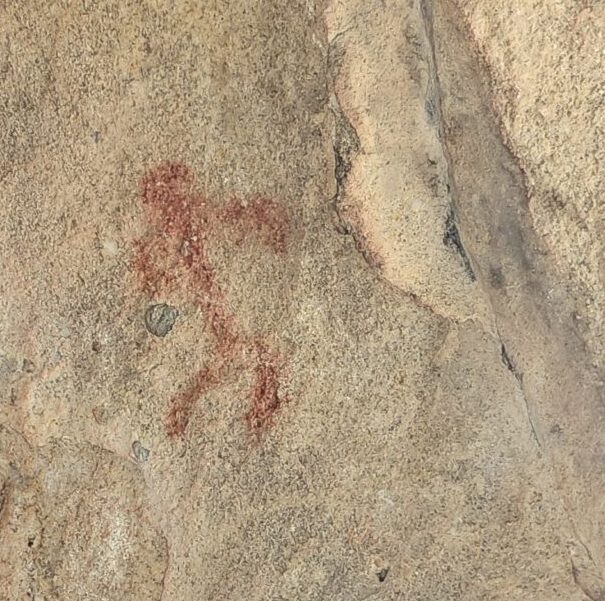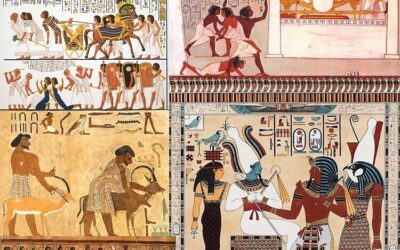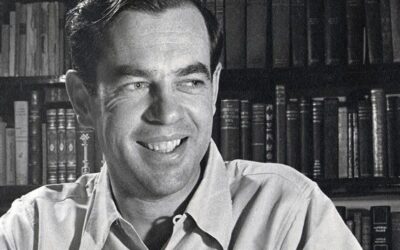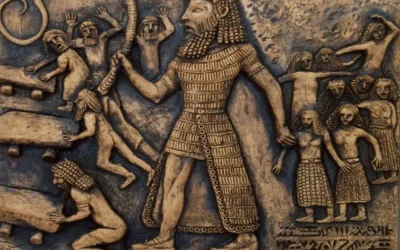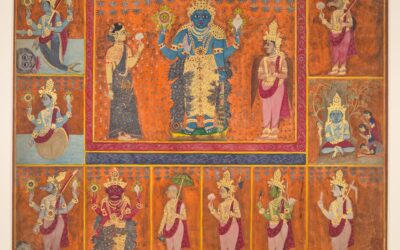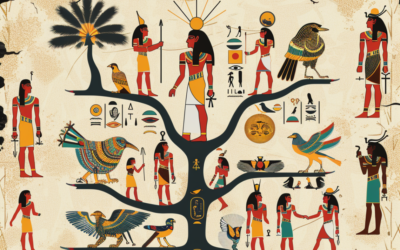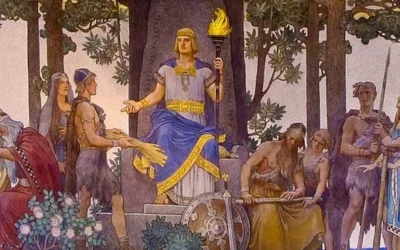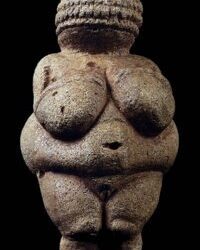Examining the Science and Cultural Manifestations of Archetypal Psychology The concept of archetypes is a central pillar of Carl Jung's analytical psychology. Jung proposed that there are universal patterns or images that shape the human psyche and emerge symbolically across cultures and throughout history. He called these primordial images "archetypes" and believed they reside in the "collective unconscious," a layer of the psyche that is inherited rather than shaped by personal experience alone. But are Jungian...
Comparative Religion: Sacred Wisdom Traditions in Therapeutic Practice
Integrating Global Spiritual Insights with Mental Health Care in Birmingham
Welcome to Taproot Therapy Collective’s exploration of how diverse religious and spiritual traditions inform contemporary therapeutic practice and personal healing. As Birmingham’s leading integrative therapy practice, we recognize that spiritual and religious frameworks offer profound resources for understanding human suffering, resilience, and transformation that complement evidence-based psychological interventions.
Understanding Religion and Spirituality in Mental Health
Our Comparative Religion blog category examines how wisdom traditions from around the world contribute to therapeutic understanding and healing practices. Rather than promoting any particular religious viewpoint, we explore how different spiritual frameworks offer valuable perspectives on psychological development, trauma recovery, meaning-making, and community healing that enhance therapeutic effectiveness.
This approach builds on the comprehensive treatment philosophy outlined on our main services page, where we emphasize personalized care that honors each individual’s cultural background, spiritual orientation, and belief systems without making presumptions about religious affiliation or spiritual interests.
Global Wisdom Traditions in Therapeutic Context
Buddhist Psychology and Mindfulness Practices offer sophisticated understanding of suffering, attachment, and liberation that directly inform contemporary therapeutic approaches. Buddhist concepts of impermanence, interdependence, and compassion provide frameworks for working with anxiety, depression, and existential concerns while mindfulness meditation practices support emotional regulation and present-moment awareness.
Christian Contemplative Traditions contribute rich heritage of spiritual direction, contemplative prayer, and mystical experience that inform depth psychological work and spiritual integration in therapy. Concepts of forgiveness, redemption, and spiritual transformation offer valuable resources for trauma recovery and personal growth, particularly relevant in Birmingham’s predominantly Christian cultural context.
Islamic Spiritual Psychology provides profound insights into human nature, spiritual development, and community healing through concepts like tazkiyah (spiritual purification), sabr (patience and perseverance), and ummah (community). Islamic approaches to mental health emphasize heart-centered healing, divine connection, and social justice that complement contemporary therapeutic approaches.
Jewish Wisdom and Tikkun Olam offer perspectives on healing individual and collective wounds through concepts of teshuvah (return/repentance), tikkun olam (repairing the world), and resilience in the face of historical trauma. Jewish therapeutic traditions emphasize questioning, dialogue, and community responsibility that inform contemporary approaches to therapy and social healing.
Hindu and Yogic Psychology contribute understanding of consciousness, spiritual development, and holistic healing through concepts like dharma (life purpose), karma (action and consequence), and moksha (liberation). Yogic practices including pranayama (breathwork), meditation, and ethical guidelines provide practical tools for psychological integration and spiritual growth.
Indigenous Spiritual Traditions from around the world offer earth-based healing approaches that emphasize connection to nature, ancestral wisdom, and community healing ceremonies. These traditions provide valuable perspectives on trauma recovery, spiritual connection, and holistic wellness that inform contemporary approaches to mental health and community healing.
Birmingham’s Religious Landscape and Therapeutic Applications
Living in Birmingham, Alabama, creates unique opportunities for exploring comparative religion in therapeutic context given the city’s diverse religious communities and rich spiritual heritage. The city’s prominent role in the civil rights movement connects with religious traditions of social justice, prophetic witness, and spiritual resistance that inform approaches to historical trauma and collective healing.
Birmingham’s African American church traditions offer powerful resources for understanding resilience, community support, and spiritual coping that enhance therapeutic work with individuals and families. Gospel music traditions, call-and-response worship patterns, and testimonial practices provide cultural frameworks for healing and transformation that complement evidence-based therapeutic approaches.
The city’s growing religious diversity including Muslim, Hindu, Buddhist, and Jewish communities creates opportunities for interfaith dialogue and cross-cultural learning that enrich therapeutic understanding and cultural competency. Understanding how different religious traditions approach mental health, family dynamics, and life transitions helps therapists provide more effective and culturally responsive care.
Research-Based Insights from Religious Studies and Psychology
Contemporary research from Harvard Divinity School’s Center for the Study of World Religions, Yale University’s Program on Religion and Mental Health, and Duke University’s Center for Spirituality, Theology and Health demonstrates the significant positive correlation between religious/spiritual practices and mental health outcomes.
Studies consistently show that religious involvement correlates with lower rates of depression and anxiety, faster recovery from mental health crises, stronger social support networks, and greater resilience in facing life challenges. Research from Baylor University’s Institute for Studies of Religion explores how different religious traditions approach psychological healing and community support.
Neuroscience research on religious and spiritual practices from institutions like University of Pennsylvania’s Center for Spirituality and the Mind reveals how prayer, meditation, and religious ritual activate neural networks associated with wellbeing, social connection, and emotional regulation, providing biological validation for spiritual approaches to mental health.
Interfaith Approaches to Mental Health Care
Cultural Competency and Religious Sensitivity require therapists to understand how different religious traditions view mental health, family relationships, gender roles, and help-seeking behavior. Effective cross-cultural therapy honors religious beliefs while providing evidence-based treatment that respects spiritual frameworks and cultural values.
Spiritual Assessment and Integration involves understanding how clients’ religious and spiritual beliefs influence their understanding of psychological distress, coping strategies, and treatment goals. This approach explores how spiritual practices can support therapeutic work while identifying potential conflicts between religious beliefs and mental health treatment.
Collaborative Care with Religious Leaders recognizes that many individuals seek guidance from clergy, spiritual directors, and religious counselors alongside professional therapy. Developing respectful partnerships with religious communities enhances treatment effectiveness while honoring clients’ spiritual support systems.
Addressing Religious Trauma and Spiritual Abuse requires understanding how religious institutions and spiritual practices can sometimes contribute to psychological harm through dogmatic teaching, spiritual manipulation, or community shunning. Therapeutic work helps individuals differentiate between healthy spirituality and harmful religious experiences while supporting spiritual recovery and growth.
Practical Applications in Therapeutic Work
Sacred Text and Story Integration explores how religious narratives, parables, and wisdom literature provide frameworks for understanding personal struggles and transformation. Working with stories from various traditions offers metaphorical resources for processing trauma, understanding relationship dynamics, and finding meaning in suffering, similar to the archetypal approaches detailed in our exploration of psychological storytelling.
Ritual and Ceremony in Healing examines how religious and spiritual practices including prayer, meditation, confession, forgiveness rituals, and life transition ceremonies support psychological healing and integration. Understanding how different traditions mark important life passages helps therapists support clients in creating meaningful healing experiences.
Community and Social Support recognizes how religious communities provide social connection, mutual aid, and shared meaning that significantly impact mental health outcomes. Therapeutic work explores how clients can develop healthy religious community connections while addressing any barriers to spiritual community participation.
Ethics and Values Clarification helps individuals explore how religious teachings and spiritual values influence life decisions, relationship choices, and personal goals. This work supports authentic spiritual development while addressing conflicts between inherited religious beliefs and personal experience or contemporary values.
Integration with Evidence-Based Practice
Comparative religion approaches integrate effectively with contemporary therapeutic modalities detailed in our psychology and research section. Cognitive-behavioral therapy benefits from understanding how religious beliefs influence thought patterns and coping strategies, while trauma therapies gain depth through recognizing spiritual dimensions of traumatic experience and recovery.
Mindfulness-based interventions draw directly from Buddhist psychological traditions while being adapted for secular therapeutic contexts, demonstrating how ancient spiritual practices inform contemporary evidence-based treatments. Family therapy approaches benefit from understanding how different religious traditions view family roles, child-rearing practices, and intergenerational relationships.
Connect with Our Comparative Religion Community
For deeper exploration of how religious and spiritual traditions inform therapeutic practice, check out more on the Discover + Heal + Grow Taproot Therapy Collective blog and podcast where we regularly feature conversations with clergy, spiritual directors, religious scholars, and therapists specializing in spiritual integration and cross-cultural mental health approaches.
Subscribe to our YouTube channel for discussions on spirituality and mental health across religious traditions, listen to our podcast for interfaith dialogues on healing and transformation, follow us on Instagram for daily wisdom from diverse spiritual traditions, connect on LinkedIn for professional resources on religion and mental health, find us on Google Maps for culturally responsive and spiritually integrated therapy services, and join our Reddit community for respectful discussions on spirituality, religion, and psychological healing.
Featured Article Categories
Our Comparative Religion blog includes World Wisdom Traditions exploring healing insights from global spiritual practices, Interfaith Mental Health examining cross-cultural approaches to psychological wellness, Religious Trauma Recovery supporting healing from harmful spiritual experiences, Sacred Psychology investigating psychological insights within religious traditions, Spiritual Integration techniques for incorporating faith and therapy, Cultural Competency developing skills for cross-cultural therapeutic work, Community and Ritual exploring how religious practices support mental health, and Contemporary Applications integrating ancient wisdom with modern therapeutic approaches.
Specialized Programs and Interfaith Initiatives
We offer quarterly Interfaith Mental Health Dialogues bringing together Birmingham religious leaders and mental health professionals, monthly Spiritual Integration Workshops for therapists developing cultural competency skills, specialized Religious Trauma Recovery Groups for individuals healing from harmful spiritual experiences, and Contemplative Practice Groups drawing from multiple wisdom traditions for meditation and spiritual growth.
Start Your Interfaith Healing Journey Today
The world’s great wisdom traditions offer profound resources for understanding human suffering and transformation that enhance contemporary therapeutic practice. Our Birmingham-based team at Taproot Therapy Collective honors diverse religious and spiritual backgrounds while providing evidence-based mental health care that respects your cultural values and spiritual orientation.
Contact Taproot Therapy Collective: 📍 2025 Shady Crest Dr. Suite 203, Hoover, AL 35216
📞 (205) 598-6471
🌐 www.GetTherapyBirmingham.com
🎧 Podcast: gettherapybirmingham.podbean.com
We provide culturally responsive therapy that honors diverse spiritual traditions while integrating evidence-based mental health treatment for comprehensive healing that respects your whole person.
Discover + Heal + Grow with Taproot Therapy Collective – Birmingham’s bridge between ancient wisdom and contemporary healing.
Gnosticism as a Metaphor for Consciousness: Meaning, Evolution, and Healing
Christian Mysticism in Therapy, Comparative Religion for Therapy, Jungian Therapy and Depth Psychology
Gnosticism as a Metaphor for Consciousness: Meaning, Evolution, and Healing Gnosticism is an ancient spiritual and philosophical worldview that offers a profound metaphor for the nature and dilemmas of human consciousness. While Gnosticism should not be taken as a literal philosophy or religion to adopt wholesale, it provides a powerful lens for exploring the ways we as conscious beings make meaning, how we evolved psychologically over time, and potential pathways for healing trauma by reconnecting with deeper...
The Mystical Roots and Therapeutic Fruits of Initiation Rites
Anthropology and Evolutionary Psychology for Therapy, Christian Mysticism in Therapy, Comparative Religion for Therapy, Jungian Therapy and Depth Psychology, Ritual and Initiation, Spirituality and The Transcendent Function in Psychotherapy
Is Psychotherapy a Type of Initiation Have you ever been part of a fraternity, sorority, or similar organization? If so, you may have experienced rituals or ceremonies that felt both challenging and transformative. Even if you haven't, you've likely encountered such rites of passage in religious services, coming-of-age celebrations, or weddings. These experiences tap into a deep human need for initiation—a symbolic death and rebirth that ushers us into a new stage of life. We see this theme in modern day rituals...
The Symbolism of The Pomegranate
Comparative Religion for Therapy, Jungian Therapy and Depth Psychology, Symbolism and Meaning in Psychotherapy
A Fruit Steeped in Symbolism and Spiritual Significance The pomegranate is a fruit that has captured the imagination of cultures and religions across the world for millennia. From ancient Greek myths to Jewish tradition, this unique fruit has been imbued with a rich tapestry of symbolic meanings and spiritual significance. In this exploration, we will delve into the various ways in which the pomegranate has been interpreted and revered, particularly in Jewish and Greek traditions, and how these meanings have been...
The Ripple Effect of Carl Jung’s Ideas
Comparative Religion for Therapy, Depth Psychology Approaches and Techniques, History of Psychotherapy, Jungian Therapy and Depth Psychology
What Schools of Thought did Carl Jung Influence? When Carl Jung began developing his theories of the psyche in the early 20th century, he likely did not foresee just how far his ideas would reach. As a psychoanalyst and philosopher, Jung was primarily focused on understanding the human mind and our inner worlds. Yet his groundbreaking concepts like the collective unconscious, archetypes, and the process of individuation ended up sowing seeds of insight that would sprout up far beyond the realm of psychology. Jung...
Gods of the Ancient World: Literal Beings, Metaphorical Constructs, or Something In Between?
Comparative Religion for Therapy, Jungian Therapy and Depth Psychology, Mythology and Therapy
How Literally Did Ancient People Take Their Mythology? The nature of gods and deities in ancient civilizations has long been a subject of fascination and debate. Did the Greeks, Romans, Egyptians, Norse, and followers of Vedic religions literally believe their gods to be anthropomorphic beings directly intervening in the mortal realm? Or were these mythological figures viewed more symbolically, as personified representations of natural forces, human virtues and vices, and the ineffable mysteries of the cosmos? As...
Timotheus Vermeulen and Robin van den Akker: Integrating Modernity, Postmodernity and the Therapeutic Encounter
Anthropology and Evolutionary Psychology for Therapy, Comparative Religion for Therapy
Who are Timotheus Vermeulen and Robin van den Akker? In their seminal 2010 essay "Notes on Metamodernism", cultural theorists Timotheus Vermeulen and Robin van den Akker outlined an emerging cultural paradigm they dubbed "metamodernism". Oscillating between the opposing poles of modernist sincerity and postmodern irony, the metamodern sensibility attempts to transcend the aporia of the postmodern era without regressing to the naivete of the modern. This article will explore the implications of Vermeulen and van...
The Metamodern Turn of Christopher Partridge: Spirituality, Depth Psychology and Healing Trauma in a Post-Postmodern World
Comparative Religion for Therapy, Depth Psychology Approaches and Techniques, Jungian Therapy and Depth Psychology, Metamodernism and Deconstruction
Who is Christopher Partridge? Professor Christopher Partridge is a leading British religious studies scholar and social scientist whose work has profoundly influenced our understanding of alternative spirituality, popular culture, and contemporary religion. As Professor of Religious Studies at Lancaster University, his groundbreaking research in Western esotericism, new religious movements, and the intersection of religion with popular music has shaped academic discourse since the 1990s. His influential books,...
John D. Caputo and the Post-Secular Path to Healing Trauma
Comparative Religion for Therapy, Depth Psychology Approaches and Techniques, Metamodernism and Deconstruction
John D. Caputo’s post-secular philosophy offers a compelling framework for psychotherapists working with trauma in the modern age. By recovering the spiritual and existential dimensions of healing, Caputo charts a path beyond the impasses of modernity towards a more soulful, transformative approach to therapy.
The Mythic Wisdom of Joseph Campbell: Insights for Anthropology and Psychotherapy
Anthropology and Evolutionary Psychology for Therapy, Comparative Religion for Therapy, Jungian Therapy and Depth Psychology, Psychotherapy Biographies: Historical Figures in the History of Psychology
Illuminating the Hero's Journey of the Human Soul by [Author Name] | [Date] "Myth is much more important and true than history. History is just journalism and you know how reliable that is." - Joseph Campbell 1. Who was Joseph Campbell Joseph Campbell (1904-1987) was an American mythologist, writer, and lecturer, best known for his work in comparative mythology and religion. His work is vast, covering many aspects of the human experience. Campbell's lifelong fascination with myth and his deep knowledge of...
The Bridge Between Ancient Wisdom and Modern Practice
Anthropology and Evolutionary Psychology for Therapy, Comparative Religion for Therapy, Guided Meditations for Therapy, Jungian Therapy and Depth Psychology
How Can Ancient Practices Inform Modern Therapy In today's fast-paced world, an interesting phenomenon has occurred - ancient spiritual practices that originated hundreds or thousands of years ago have undergone a remarkable transformation, evolving from their roots as sacred rituals and ceremonies into secular, evidence-based therapeutic techniques and wellness trends. A closer look reveals fascinating insights into how traditional wisdom continues to shape contemporary approaches to well-being, offering a...
The Rituals of Healing:
Anthropology and Evolutionary Psychology for Therapy, Comparative Religion for Therapy, Jungian Therapy and Depth Psychology, Ritual and Initiation
Anthropological Insights into Modern Psychotherapy Throughout human history and across cultures, rituals and storytelling have played a central role in addressing psychological ailments and facilitating healing. While modern psychotherapy can seem like a far cry from the traditional practices of shamans and healers, a closer examination reveals intriguing parallels in how both employ symbols, narrative, and community to treat mental illness and restore well-being. At their core, healing rituals and psychotherapy...
Can Psychotherapy Survive Staying Seperated from Anthropology and Philosophy?
Comparative Religion for Therapy, Depth Psychology Approaches and Techniques, Evidence Based Practice and Research Psychology, Trauma, Depth Psychology, and Social Work
Should Psychotherapy Ponder the Mysteries of Philosophy and Anthropology? The specialized and fragmented nature of modern psychology has led to an abstracted and decontextualized view of the self, one that is disconnected from the embodied, embedded, and enactive dimensions of human experience. By drawing upon the insights of anthropology, philosophy, and the study of ancient religious traditions, we can begin to re-imagine psychology as a more holistic and integrative discipline, one that recognizes the deep...
The Evolution of Archetypes: The Wheels of Understanding Jung Set in Motion
Comparative Religion for Therapy, Depth Psychology Approaches and Techniques, History of Psychotherapy, Jungian Therapy and Depth Psychology, Models of Psychotherapy
From Jung to Contemporary Thought Patterns of Self The concept of archetypes is one of the most enduring and influential ideas to emerge from the work of Swiss psychiatrist Carl Gustav Jung. Archetypes are universal patterns of behavior, images, and symbols that Jung believed reside within the collective unconscious of humanity. They are not individual-specific but are shared across cultures and throughout history, shaping our understanding of the world and our place within it. This paper will explore the origins...
The Epic of Gilgamesh: A Depth Psychological Reading
Comparative Religion for Therapy, Jungian Therapy and Depth Psychology, Mythology and Therapy, Symbolism and Meaning in Psychotherapy
How to Understand The Epic of Gilgamesh What is the Epic of Gilgamesh The Epic of Gilgamesh is one of the oldest surviving works of literature, dated to around 2100 BCE. This Sumerian epic poem tells the story of Gilgamesh, the hero-king of Uruk, and his adventures with his wild-man companion Enkidu. On the surface, it is a tale of heroic exploits, friendship, loss, the search for immortality, and the acceptance of death. Yet when viewed through the lens of depth psychology, the Epic of Gilgamesh can be seen as a...
The Pantheon: Myths are Public Dreams, Dreams are Private Myths
Comparative Religion for Therapy, Jungian Therapy and Depth Psychology, Mythology and Therapy, Symbolism and Meaning in Psychotherapy
"Myths are public dreams, dreams are private myths. By finding your own dream and following it through, it will lead you to the myth-world in which you live. But just as in dream, the subject and object, though they seem to be separate, are really the same." Joseph Campbell Why do they use Mythology in Therapy? Mythology has long been a source of fascination for people around the world. These ancient stories, filled with gods, heroes, and fantastical creatures, have captured the imagination of generations....
Hindu Mythology: As Parts of Self
Comparative Religion for Therapy, Jungian Therapy and Depth Psychology, Mythology and Therapy
Hindu Mythology: A Tapestry of Divine Multiplicity and the Nature of Self Chapter 11, Verses 30-33: 30. "I am time, the great destroyer of the worlds, and I have come here to destroy all people. With the exception of you [the Pandavas], all the soldiers here on both sides will be slain. 31. Therefore, you should perform your duty in battle. I have already determined that these soldiers will die. Do not be disturbed by this. 32. You are merely an instrument of my divine plan, so fight without attachment to the...
Greek Mythology: The Gods of Change, Cyclical Order, and Human Experience
Comparative Religion for Therapy, Jungian Therapy and Depth Psychology, Mythology and Therapy
Why do they Use Greek Myths in Therapy? Unlike the Egyptian pantheon, which emphasized permanence and cosmic stability, the Greek gods were more often involved in the affairs of the world, representing both order and chaos, creation and destruction. Their myths explored the tensions between fate and free will, the rise and fall of empires, and the cycles of life, death, and rebirth. Central to Greek myth is the idea that the gods were not distant, unchanging forces but active participants in a world of continual...
Egyptian Mythology: Gods, Dynasties, and the Eternal Empire
Comparative Religion for Therapy, Depth Psychology Approaches and Techniques, Dreams and the Unconscious, Jungian Therapy and Depth Psychology, Mythology and Therapy
Exploring Permanence in Egyptian Mythology Egyptian architecture with its bold forms and slow lines is still associated and used to envoke power and formalism through structure. Egyptian mythology, like the civilization that produced it, is steeped in notions of permanence, eternity, and cosmic order. This focus on permanence is understandable when one considers Egypt’s geographical and political context: a kingdom bound to the cyclical flooding of the Nile, subject to occasional famine or drought, and ruled by...
Norse Mythology and the Self
Comparative Religion for Therapy, Jungian Therapy and Depth Psychology, Mythology and Therapy
A Jungian Perspective on Norse Pantheon Archetypes in Therapy In the deep frost of Scandinavian myth, the Norse pantheon emerges not only as a constellation of divine beings but as a reflection of the human psyche. Unlike the rigidly idealized gods of Greek and Egyptian myth, the gods of Norse mythology seem to struggle with the same chaotic, inevitable forces that shape the human condition. These figures—Odin, Thor, Freyja, Loki, and others—are not merely external representations of power or virtue but...
The Divided Mind and the Quest for Meaning Part 2
Comparative Religion for Therapy, Depth Psychology Approaches and Techniques, Psychology of Buildings and Architecture, Psychology of Conspiracy Theories, Psychology of Mystics, Gurus, and Spiritual Philosophers, Symbolism and Meaning in Psychotherapy
The Divided Mind and the Quest for Meaning Part 1 Part 2 >Part 3< The Meta-Modern Mind in a Technological Age As we explore the evolution of human thought and culture, it becomes clear that the themes of the divided mind and the misappropriation of metaphor play out not only in individual psychology but also on a larger scale through cultural movements and political tides. Just as individuals struggle to reconcile their subjective experiences with objective reality, societies grapple with the...
The Evolutionary Origins of Religion: Why is Mankind Religious?
Anthropology and Evolutionary Psychology for Therapy, Comparative Religion for Therapy
What did Prehistoric Religion Look Like: Main Ideas and Key Points: The Venus of Willendorf, a Paleolithic figurine, suggests the existence of prehistoric "Venus cults" that venerated female deities associated with fertility and the earth. Prehistoric religions likely involved myth and ritual to explain the world, provide meaning, and promote social bonding. Shamanism, involving altered states of consciousness, may have been an early form of religious practice. The Neolithic Revolution saw the rise of...
Paganism: Insights from Anthropology, Psychology, and Comparative Religion
Anthropology and Evolutionary Psychology for Therapy, Comparative Religion for Therapy, Jungian Therapy and Depth Psychology, Symbolism and Meaning in Psychotherapy
“My point, once again, is not that those ancient people told literal stories and we are now smart enough to take them symbolically, but that they told them symbolically and we are now dumb enough to take them literally.” ― John Dominic Crossan, Who Is Jesus? Answers to Your Questions About the Historical Jesus Main Ideas and Key Points: 1. John Dominic Crossan argues that ancient people told religious stories symbolically, while modern people often interpret them literally. 2. The development of religion...
Book Review of The Sacred in the Profane: Exploring Religion and Order
Anthropology and Evolutionary Psychology for Therapy, Comparative Religion for Therapy
Sacred and the Profane: A Pioneering Study of Religion "The Sacred in the Profane" is a significant early work in the academic study of religion. Unlike approaching religion as an unquestionable truth about the universe, the book delves into its exploration as an academic subject. If you have taken a religion 101 class in college, chances are you encountered Eliade's work. While the book may feel dated in some parts due to its age, it still offers valuable insights into the human tendency to create order out of...

